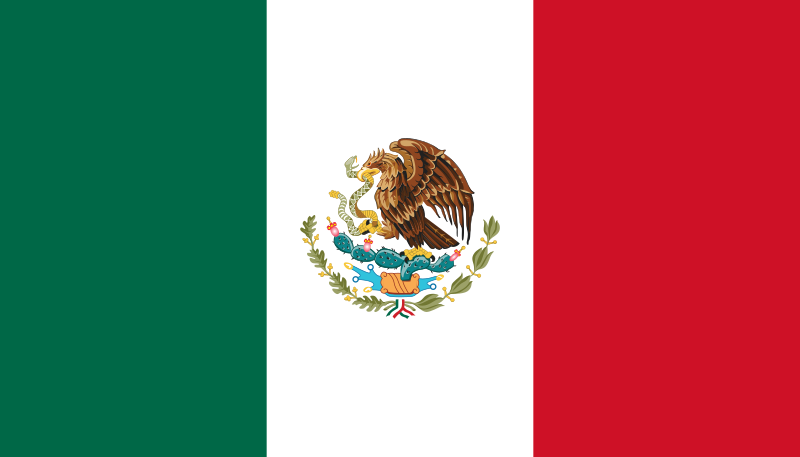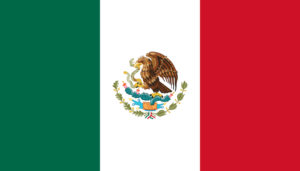Mexico: Fight for New Incentives
September 13, 2013
Mexico’s solar thermal programme Procalsol restarted in August 2013. The Procalsol working group of renewable energy industry association FAMERAC (Fabricantes Mexicanos en las Energías Renovables) is currently lobbying to establish new incentives, a unified national quality standard and new standards for accredited solar installers. The new Procalsol group expects to increase the domestic market by 20% annually up to 2018. But the weak situation of the construction market is hampering the solar thermal sector and installation figures in 2013 are expected to be lower than the ones of last year. The photo shows a solar hot water system for workers’ showers in a car parts factory, consisting of 25 collectors and a 4,000-litres storage tank.
Mexico is facing some crucial reforms with the new government of Enrique Peña Nieto, which came to power last December. Probably the most important piece of news is the long-awaited energy reform, which has been talked about since the energy sector was nationalised in 1938. The reform had raised expectations among renewable energy and solar thermal investors and businesses that it would allow private investors to enter the energy market and reallocate some of the new government revenues to renewable energy promotion funds. These expectations, however, turned out to be only wishful thinking. The truth is that to date, the Reforma Energética seems to have addressed neither new entries nor a reallocation of funds, which has left the solar thermal sector with little choice but to lobby for an alternative incentive scheme.
“The new energy reform largely focuses on the oil and fuel sector and has, so far, not addressed solar thermal. Still, we are lobbying the administration to design new incentive schemes for solar thermal,” explains Daniel García, new FAMERAC President and Sales Director of Mexican collector manufacturer Modulo Solar. According to García, the new Procalsol team has started its work over the last weeks and is already occupied with three promotion areas: financing, standards & certification, as well as training.
With regards to financing, there have already been two operative programmes promoting the installation of solar thermal systems. The first one is the green mortgage scheme Hipoteca Verde, which offers low-interest loans for financing solar thermal systems in residential houses.
According to FAMERAC, Hipoteca Verde accounted for around 100,000 m² in 2012, which is a share of 53 % of the 190,500 m² of total glazed collector area installed in the same year. But Hipoteca Verde seems to have been losing its momentum lately. “There is a crisis developing in the construction sector and the lack of enforcement of Hipoteca Verde has resulted in a drop of the number of projects applying for this incentive. The figure may be 20% lower than last year,” states García. This means that the volume of solar water heaters financed by a low-interest loan will fall to between 75,000 and 80,000 m².
The second incentive programme is the Fideicomiso de Riesgo Compartido (FIRCO) or Trust Fund for Shared Risk, which focuses on the agricultural sector. This incentive applied to barely 5% of the entire solar thermal market in 2012, according to figures from FAMERAC.
Besides those two schemes, there are only some fiscal incentives on the income tax for commercial solar water heating systems. “This means that homeowners have used their own money for more than 40 % of all installations on the Mexican solar thermal market. We need to create new promotion mechanisms,” says García. The new subsidy schemes sought by Procalsol (2013 to 2018) may be financed through special funds created during the energy reform. “We still have to define the type of incentives. But we are working closely with the Mexican National Commission for Energy Efficiency, CONUEE,” he adds.
FAMERAC has also been engaged in the area of new quality standards. To date, there has only been one compulsory standard for system buyers applying to Hipoteca Verde, roughly translated as the Technical Report on Residential Solar Thermal Systems, DTESTV. This standard was renewed in 2012 with some immediate effects. “There were around 250 different collector types in the market before the new DTESTV. Now, the number of approved models is only 40. That means better quality systems and a better image for solar,” says García. The new Procalsol team, however, is struggling to create a unified standard for the entire country. Currently, there are two voluntary and non-compulsory standards, the NMX-ES-001-NORMEX (for collectors) and NMX-ES-004-NORMEX (for prefabricated systems). García’s idea is to make those voluntary standards a compulsory one for the entire solar thermal market and adapt it to the international UNE and ISO norms. “We have begun to specify the unified standard and expect some results at the end of 2013. The government has warmly welcomed our initiative,” the FAMERAC president lays out the schedule.
Funding and standards are not the only battlefronts in Mexico, though. Another one are new standards for training installers. In November 2012, a new committee managing work skills in energy efficiency and renewable energy was created within the Energy Secretary, SENER. The President of the Solar Energy Association, ANES, Álvaro Lentz Herrera, and Daniel García are managing the committee which consists of 24 companies and associations. The first already approved training standard focuses on thermosiphon systems in single-family homes. “Two more training standards for blocks of flats and commercial buildings are in planning,” explains García. Another of the group’s aims is to establish a network of accredited installers being able to operate across the country.
In general, García is confident that the Mexican solar thermal market has a bright future ahead: “We intend to create installation target figures up to 2018, with a 20% annual increase, which we think is pretty realistic.” But the current shortfall in the construction market, a lack of credit and changes in government make the situation seem less than favourable.
More information:
http://www.firco.gob.mx
http://www.modulosolar.com.mx
http://www.procalsol.gob.mx
http://www.famerac.org
http://www.anes.org/anes/index.php


